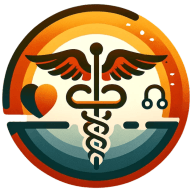In the ever-evolving world of healthcare, the integration of health IT systems has become a crucial aspect. This blog post will delve into the intricacies of integrating health IT systems, exploring the benefits, challenges, and strategies involved. We'll also discuss the impact of this integration on healthcare providers and patients, and how it's shaping the future of healthcare delivery.
The Importance of Health IT Systems Integration
Health IT systems integration is a fundamental component of modern healthcare. It's a process that involves the seamless exchange of health information across various platforms and systems. This integration is vital for improving patient care, enhancing efficiency, and reducing healthcare costs.
Health IT systems integration allows healthcare providers to access comprehensive patient information in real-time. This access to data aids in accurate diagnosis and effective treatment. It also reduces the chances of medical errors, which can be life-threatening.
Moreover, the integration of health IT systems streamlines administrative tasks. It eliminates the need for manual data entry, reducing the chances of errors and saving valuable time. This efficiency allows healthcare providers to focus more on patient care.
However, integrating health IT systems is not without its challenges. It requires careful planning, significant investment, and a thorough understanding of both healthcare and IT.
Challenges in Integrating Health IT Systems
While the benefits of health IT systems integration are clear, the process is fraught with challenges. One of the primary hurdles is the lack of standardization. Different health IT systems often use different data formats, making integration difficult.
Another challenge is the high cost of integration. It requires significant investment in hardware, software, and training. For many healthcare providers, especially smaller ones, this cost can be prohibitive.
Data security is another major concern. Health IT systems contain sensitive patient information, and any breach can have serious consequences. Therefore, any integration must ensure the highest level of data security.
Despite these challenges, the integration of health IT systems is not just desirable, but necessary. It requires a strategic approach, careful planning, and the right tools.
Strategies for Successful Health IT Systems Integration
Successful health IT systems integration requires a strategic approach. The first step is to conduct a thorough assessment of the current IT infrastructure. This assessment should identify the systems in use, their compatibility, and the gaps that need to be addressed.
The next step is to define clear objectives for the integration. These objectives should align with the overall goals of the healthcare provider. They should also take into account the needs of the patients and the healthcare staff.
Choosing the right integration tools is another crucial aspect. These tools should be able to handle the complexity of the integration, ensure data security, and be user-friendly.
Training the staff is also essential. They should be comfortable using the integrated system and understand its benefits. This understanding will help them embrace the change and use the system effectively.
The Impact of Health IT Systems Integration on Healthcare Providers
Health IT systems integration has a profound impact on healthcare providers. It improves their efficiency by automating administrative tasks. This automation frees up their time, allowing them to focus more on patient care.
The integration also provides healthcare providers with comprehensive patient information. This information aids in accurate diagnosis and effective treatment. It also reduces the chances of medical errors.
Moreover, health IT systems integration enhances communication among healthcare providers. It allows them to collaborate effectively, improving patient care.
However, the integration also requires healthcare providers to adapt to new ways of working. It requires them to learn new skills and embrace change. This adaptation can be challenging, but it's essential for leveraging the benefits of integration.
The Impact of Health IT Systems Integration on Patients
Patients also benefit significantly from health IT systems integration. It improves the quality of care they receive. With comprehensive and accurate patient information, healthcare providers can make better treatment decisions.
The integration also enhances communication between patients and healthcare providers. It allows patients to access their health information, understand their health condition, and participate in their care.
Moreover, health IT systems integration reduces the chances of medical errors. It ensures that healthcare providers have the right information at the right time, reducing the chances of mistakes.
However, the integration also raises concerns about data security. Patients need to be assured that their sensitive health information is safe and secure.
The Future of Health IT Systems Integration
The future of health IT systems integration looks promising. With advancements in technology, the process is becoming easier and more efficient. Artificial intelligence and machine learning are playing a significant role in this evolution.
In the future, we can expect more seamless and secure health IT systems integration. This integration will further improve patient care, enhance efficiency, and reduce healthcare costs.
However, the success of health IT systems integration will depend on overcoming the challenges. It will require continued investment, standardization, and a commitment to data security.
Wrapping Up: The Journey of Integrating Health IT Systems
Integrating health IT systems is a complex but necessary process in modern healthcare. It offers numerous benefits, including improved patient care, enhanced efficiency, and reduced costs. However, it also presents challenges that need to be addressed. With strategic planning, the right tools, and a commitment to data security, successful health IT systems integration is achievable. As we move forward, the integration of health IT systems will continue to shape the future of healthcare.

